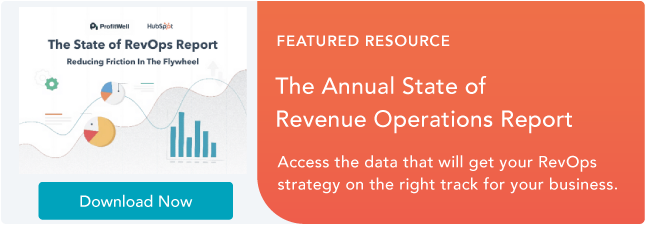“The Cloud.”
It’s a concept that has grown wildly within the past 20-40 years as technology evolves. But if you’re like me, you might not know what it really means.
The cloud refers to how and where data is stored and where it isn’t. It allows software and services to run on the internet, instead of only locally on one device, because the data is stored remotely across a variety of different servers.
With this technology, companies have begun storing data online and modernizing their infrastructure, data management, storage, and analytics.
While data management, analytics, and integration can sound like intimidating topics (especially to those of us that aren’t mathematically inclined), it’s so important for analyzing, strategizing, and increasing reliability in data for your marketing efforts.
In this post, let’s review what data as a service (DaaS) means and look at some DaaS companies to understand it better.
DaaS companies focus on helping customers use their data in the most strategic, efficient way. Additionally, they help customers store their data and have impeccable search functions to make creating data reports easier.
As we continue to get more data and insights into what works and doesn’t, data-driven decision-making is becoming more and more popular among businesses.
DaaS is similar to software as a service (SaaS), which are companies that offer software online and via the cloud, instead of needing to download or install a program. There’s also IaaS (Infrastructure as a Service) and PaaS (Platform as a Service).
Any “as a service” company is using the cloud to manage business resources. And while SaaS is a popular term that many people know, not as many people are familiar with DaaS. This is partially because data continues to get more advanced, with more storage capabilities and better analytics as the cloud evolves.
DaaS companies usually are priced based on the amount of data storage that a business wants to purchase. Data is measured using the megabyte model.
When businesses have an excess of data and aren’t sure how to maintain it, DaaS is a popular solution. By using DaaS software, companies can immediately store and manage their data and will have greater flexibility when it comes to scaling up.
By now, you might be wondering, “What are the benefits of using a DaaS platform?”
Well, one of the main advantages of using a DaaS platform instead of storing data physically on-site is automated maintenance. The DaaS provider will automatically manage data and keep the tools and services up-to-date.
Additionally, DaaS is more cost-effective and will lead to more agile decision-making and faster innovation. This is because data will be the center of the business and used for strategic decision-making and data management.
With a data-driven culture, an organization will be able to innovate and grow at high rates because its ideas and initiatives are informed by trustworthy data.
For example, a company can use a cloud-based DaaS solution to manage compliance and scaling requirements, making it easier to adjust operations to fluctuating demands.
So, what does this look like in action? And what are some examples of a DaaS company? Let’s dive in below.
Data as a Service (DaaS) Companies
1. Snowflake
Snowflake is a DaaS company that provides data warehousing, data lake, data sharing, and data exchange capabilities. This was one of the first modern DaaS companies to provide data as a service products. With this platform, your company can store and analyze both structured and semi-structured data for business insights.
2. SAP Hana
SAP Hana is a high-performance in-memory database that provides advanced analytics on multimodel data, on-premise, and in the cloud. With this platform, you can build data solutions with modern architectures and gain business-ready insights in real-time.
3. Oracle DaaS
Oracle DaaS is a subscription-based marketing intelligence platform that leverages Oracle’s acquisitions of Datalogix and BlueKai. Oracle DaaS for Marketing provides anonymous multi-channel data for marketers, and Oracle DaaS for Social provides social and enterprise data.
As technology continues to evolve, managing, storing, and analyzing data will become increasingly important. And while it might seem confusing, DaaS companies can help simplify this process and make it easier to understand.
![]()

![Download Now: 2021 State of RevOps [Free Report]](https://i4lead.com/wp-content/uploads/2021/09/78dd9e0f-e514-4c88-835a-a8bbff930a4c-2.png)
